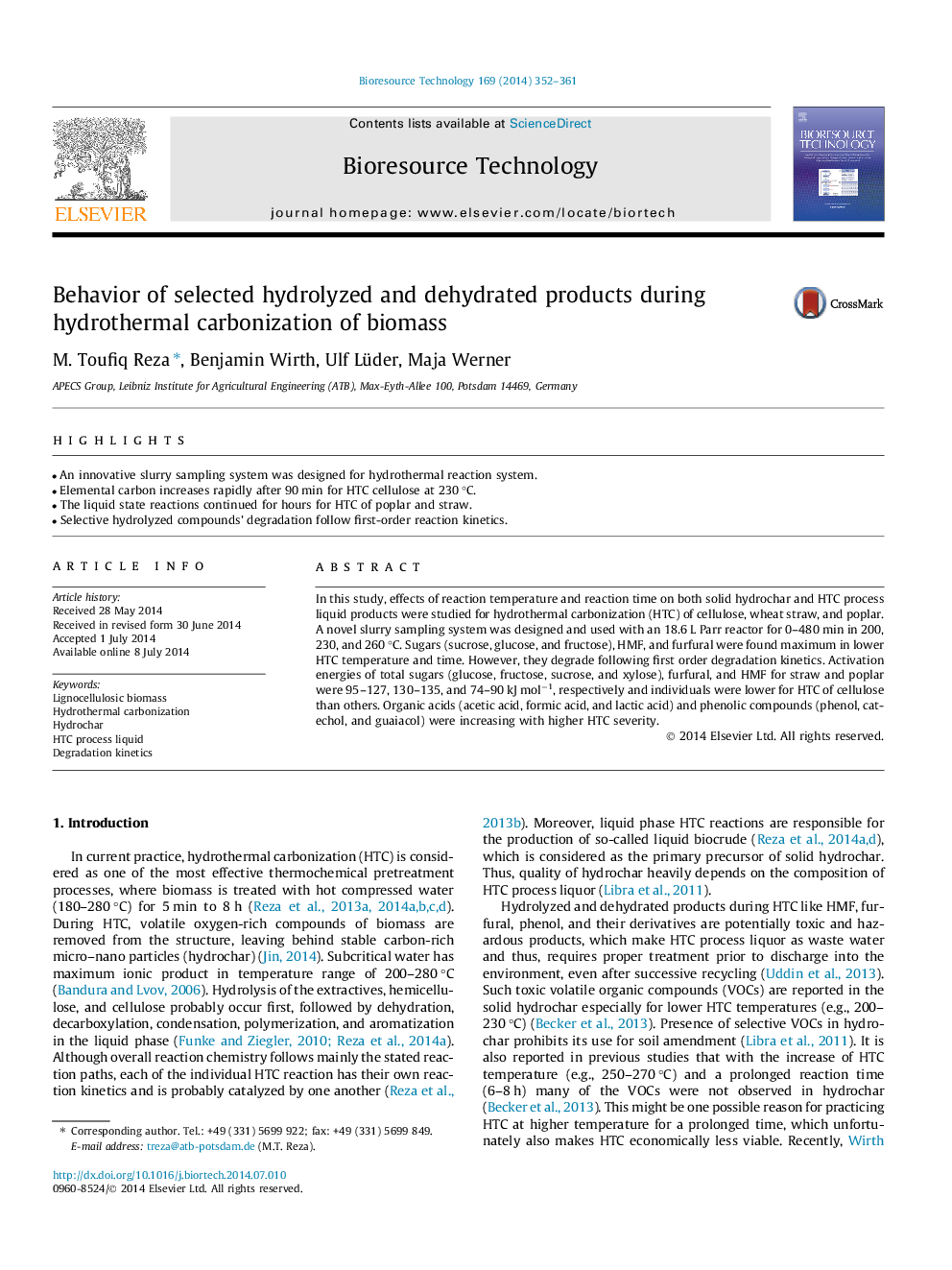| Article ID | Journal | Published Year | Pages | File Type |
|---|---|---|---|---|
| 680691 | Bioresource Technology | 2014 | 10 Pages |
•An innovative slurry sampling system was designed for hydrothermal reaction system.•Elemental carbon increases rapidly after 90 min for HTC cellulose at 230 °C.•The liquid state reactions continued for hours for HTC of poplar and straw.•Selective hydrolyzed compounds’ degradation follow first-order reaction kinetics.
In this study, effects of reaction temperature and reaction time on both solid hydrochar and HTC process liquid products were studied for hydrothermal carbonization (HTC) of cellulose, wheat straw, and poplar. A novel slurry sampling system was designed and used with an 18.6 L Parr reactor for 0–480 min in 200, 230, and 260 °C. Sugars (sucrose, glucose, and fructose), HMF, and furfural were found maximum in lower HTC temperature and time. However, they degrade following first order degradation kinetics. Activation energies of total sugars (glucose, fructose, sucrose, and xylose), furfural, and HMF for straw and poplar were 95–127, 130–135, and 74–90 kJ mol−1, respectively and individuals were lower for HTC of cellulose than others. Organic acids (acetic acid, formic acid, and lactic acid) and phenolic compounds (phenol, catechol, and guaiacol) were increasing with higher HTC severity.
